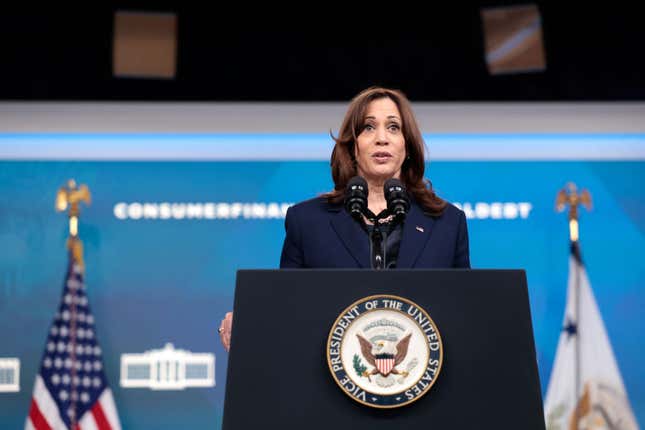
About 23 million Americans hold some medical debt. According to a Consumer Financial Protection report, U.S. consumers held $88 billion in debt as of June 2021. Most of that burden falls on the shoulders of Black families (27.9 percent of Black households carrying medical debt compared to 17.2 percent of white non-Hispanic households).
Organizations such as Stacey Abrams’s Fair Fight Action have donated money to help those struggling in southern states, but it’s clear more action is needed. CNN reports that the Biden administration is taking additional steps to help Americans shoulder rising healthcare costs.
Last year, major credit reporting firms began to remove 70% of medical collection debt from credit reports. The “No Surprises Act,” which went into effect in January, banned most expected medical charges from out-of-network providers. Still, Vice President Kamala Harris acknowledged more steps need to be taken in a press conference announcing The White House initiatives on Monday.
“No one in our nation should have to go bankrupt just to get the health care they need,” Vice President Kamala Harris said yesterday.
“Having medical debt because you were sick or injured should not lower your credit score and make it more difficult to secure the help you need to get out of debt,” she added.
There are four ways the Biden administration plan to tackle medical debt as outlined in The White House Fact Sheet:
- Consumer Financial Protection Bureau will investigate credit reporting companies and debt collectors that violate patients’ and families’ rights
- Bolster its consumer education tools aimed at helping Americans navigate medical billing and accessing financial assistance.
- Provide more guidance to federal agencies to eliminate medical debt as an underwriting factor in credit programs, where possible
- The U.S. Department of Agriculture will no longer include any recurring medical debts in borrower repayment calculations.
While the National Consumer Law Center applauds the Biden administration’s efforts, they also state that more measures are needed.
“We have seen too many patients face lawsuits and debt collection from non-profit hospitals when they should have received hospital financial assistance instead,” said Jenifer Bosco, staff attorney at the center.
The law center also requests the “CFPB to require debt collectors to inform consumers about the availability of financial aid and to clarify that medical debt must be treated as disputed if the patient reports that the bill should be covered by insurance” as another layer of protection.

